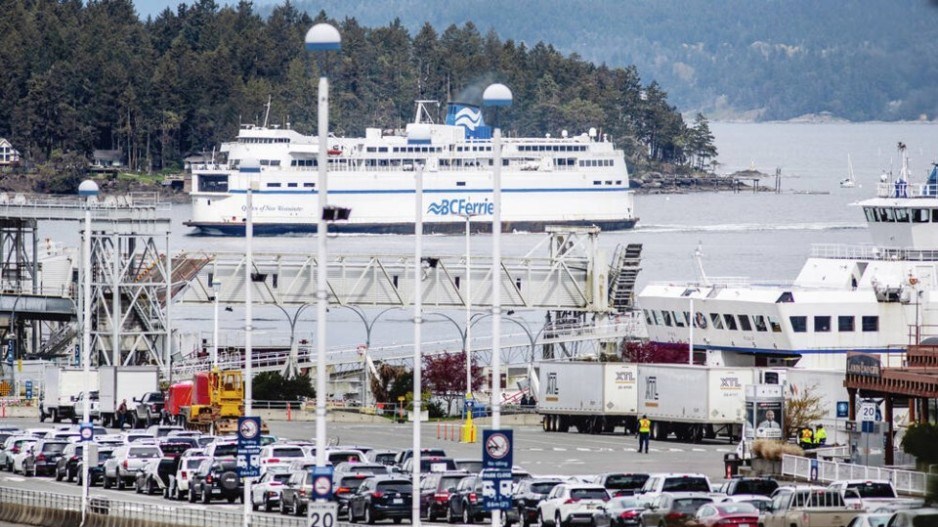B.C. Ferries’ fares could rise an average of 3.2 per cent a year for four years, starting April 1.
The actual increases must still be determined and are expected to vary by route.
The price-cap announcement comes after the province provided $500 million to stave off feared double-digit increases.
The cap is the maximum increase allowable for passenger and vehicle fares and reservation fees, and does not affect fuel surcharges, parking costs or retail operations.
B.C. Ferries Commissioner Eva Hage warned Tuesday in the rate-cap statement that double-digit fare increases may still be on the horizon without another chunk of government money, noting the organization faces servicing costs for long-term debt, estimated to reach $3 billion by 2028.
Transportation Minister Rob Fleming also said Tuesday that penalties will be imposed on B.C. Ferries when core sailings are missed because of crew shortages. Details will be revealed in the spring.
B.C. Ferries had a rocky summer season where major vessels were pulled from service for mechanical problems, causing disruptions for thousands of travellers, and ongoing labour shortages continued to result in cancelled sailings.
When Hage sets the price cap, which happens every four years, she is charged with determining how much revenue is needed to cover the system’s operating costs and debt servicing. Expenses include fuel, labour costs and capital plans.




